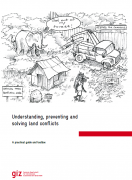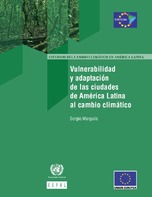Location
As a service provider in the field of international cooperation for sustainable development and international education work, we are dedicated to shaping a future worth living around the world. We have over 50 years of experience in a wide variety of areas, including economic development and employment promotion, energy and the environment, and peace and security. The diverse expertise of our federal enterprise is in demand around the globe – from the German Government, European Union institutions, the United Nations, the private sector, and governments of other countries. We work with businesses, civil society actors and research institutions, fostering successful interaction between development policy and other policy fields and areas of activity. Our main commissioning party is the German Federal Ministry for Economic Cooperation and Development (BMZ). The commissioning parties and cooperation partners all place their trust in GIZ, and we work with them to generate ideas for political, social and economic change, to develop these into concrete plans and to implement them. Since we are a public-benefit federal enterprise, German and European values are central to our work. Together with our partners in national governments worldwide and cooperation partners from the worlds of business, research and civil society, we work flexibly to deliver effective solutions that offer people better prospects and sustainably improve their living conditions.
Members:
Resources
Displaying 181 - 185 of 340Understanding, preventing and solving land conflicts: A practical guide and toolbox
This guide is intended for practitioners who are confronted with land conflicts in the course of their work or are in a position to prevent them and/or include land governance as one pillar in their policies. It aims to broaden the understanding of the complexity of causes that lead to land conflicts in order to provide for better-targeted ways of addressing such conflicts, and provides a number of tools with which to analyse land disputes. In addition, this guidebook discusses a wide variety of options and tools for settling ongoing land conflicts and for preventing new ones.
Hoja Informativa N.º 3 Obstáculos en el marco de la titulación de las tierras de comunidades nativas en Ucayali (a marzo de 2017)
Esta hoja informativa presenta los resultados de un estudio realizado entre diciembre de 2016 y marzo de 2017 por el Instituto del Bien Común (IBC) sobre los obstáculos de la titulación de tierras de las comunidades nativas en la región de Ucayali. El estudio se elaboró en coordinación con la Dirección Regional de Agricultura de Ucayali (DRAU) y las organizaciones regionales indígenas, con el apoyo de la cooperación alemana para el desarrollo, ejecutada por la Deutsche Gesellschaft für Internationale Zusammenarbeit (GIZ) GmbH, a través del proyecto ProTierras Comunales.
Hoja Informativa N.º 3 Obstáculos en el marco de la titulación de las tierras de comunidades nativas en Ucayali (a marzo de 2017)
This fact sheet presents the results of a study carried out between Dezember 2016 and March 2017 by the Instituto del Bien Común (IBC) on the possible obstacles of land titling of native communities in the region of Ucayali. The study is developed in coordination with the Regional Directorate of Agriculture of Ucayali (DRAU) and indigenous regional organizations, with support from the German development cooperation, implemented by the Deutsche Gesellschaft für Internationale Zusammenarbeit (GIZ) GmbH, through the ProTierras Comunales project.
Land in German Development Cooperation: Guiding principles, challenges and prospects for the future.
“Land matters” – more than ever! Can land be dealt with like other resources or – in terms of an economic perspective– forms of capital. Or does it attract particular meanings, sentiments, interests, acquisition strategies or social relations?
Vulnerabilidad y adaptación de las ciudades de América Latina al cambio climático
El objetivo de este estudio es realizar una revisión teórica y empírica de los procesos de mitigación y adaptación al cambio climático en áreas urbanas enfocándose en América Latina. De acuerdo con los resultados recientes de la Conferencia de las Partes (COP 21, por sus siglas en inglés) en París, se espera que muchas ciudades en América Latina y de otras partes del mundo preparen planes de acción climática. Sin embargo, de acuerdo con la con la revisión realizada, no existen muchas ciudades en la región que tengan planes consistentes con un fundamento técnico solido.




